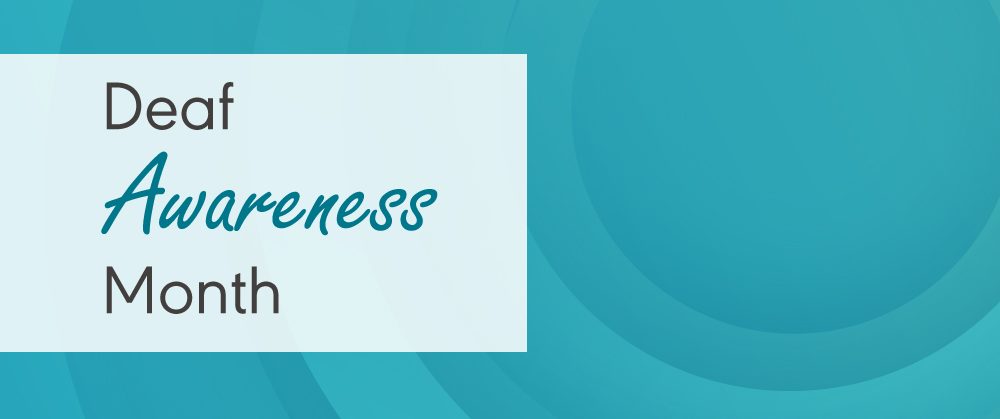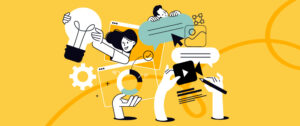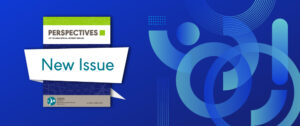The ASHA Journals are recognizing Deaf Awareness Month by sharing six articles for audiologists and speech-language pathologists working with people who are deaf and hard of hearing. These articles highlight current issues and can help clinicians better understand and support this population.
The first three articles focus on the unique challenges associated with childhood deafness or hearing loss. The next three articles present new research about adults who are deaf or hard of hearing.
Deafness and Hearing Loss in Children
Benefits of Visual Language: How Acquisition of Signed Language Complements Spoken Language Development: Typically, speech-language pathologists working with children who are deaf focus on speech and listening skills, with the intent of increasing language development. In this article, the authors point out that language consists of more than just speaking and listening, and that bimodal bilingualism—that is, speaking and signing at the same time—is the best way to support language acquisition.
Supporting the Social–Emotional Well-Being of Elementary School Students Who Are Deaf and Hard of Hearing: A Pilot Study: In order to create resources to support the social–emotional well-being of students who are deaf and hard of hearing, researchers reached out to students, parents, and teachers for their input. Together, they created a web-based resource that has shown potential to improve students’ levels of peer support and feelings of loneliness and increase parents’ self-efficacy.
The Effect of a Graduate Course in Cued Speech on Students’ Perspectives: A Pilot Study: How much can a single graduate course affect students’ perspectives on people who are deaf and hard of hearing? Researchers found that after a course on cued speech, students’ perspectives and opinions shifted not only about cued speech but about other issues, including deaf education and Deaf culture.
The Latest on Adults Who Are Deaf and Hard of Hearing
Reframing Our Health Care System for Patients With Hearing Loss: Individuals with hearing loss report lack of access to health information as well as communication breakdowns with health care providers who may not be properly trained on working with this population. In this article, the authors provide actionable steps at the system, clinic, provider, and patient levels to better meet the needs of people with hearing loss.
Labor Force Participation and Hearing Loss Among Adults in the United States: Evidence From the National Health and Nutrition Examination Survey: Hearing loss has been associated with cognitive decline, loss of social engagement, and loneliness, but little research has been done on how hearing affects one’s career. The authors looked at data from nearly 10,000 people, finding that people of working age with moderate-to-severe hearing loss were less likely to be employed.
Adults With Hearing Loss Demonstrate Resilience During COVID-19 Pandemic: Applications for Postpandemic Services: While people with hearing loss reported stress and anxiety due to a number of factors during the COVID-19 pandemic, they also showed resilience and found that technology could help. This article encourages audiologists to (a) build on use of remote technology that was prevalent at the height of the pandemic and (b) consider offering hybrid or fully remote services.
Supporting People Who Are Deaf and Hard of Hearing
ASHA’s topic pages have the latest articles on dozens of topics—as well as thousands of articles going back more than 80 years! In recognition of Deaf Awareness Month, we suggest that you check out our topic collections on Audiologic/Aural Rehabilitation; Hearing and Speech Perception; Hearing Aids, Cochlear Implants, and Assistive Technology; or Hearing Disorders.
If you’d like more information on hearing loss, ASHA has you covered: Our hearing loss webpage contains information on hearing loss types and causes—as well as the effects of hearing loss and steps individuals can take to prevent hearing loss. Thank you so much for reading the latest on supporting people who are deaf and hard of hearing. Deaf Awareness Month celebrates the language, culture, and diversity of the Deaf community in the United States. Be sure to take some time out this month to spread awareness or thank an ASHA member for the important work they do for this population







